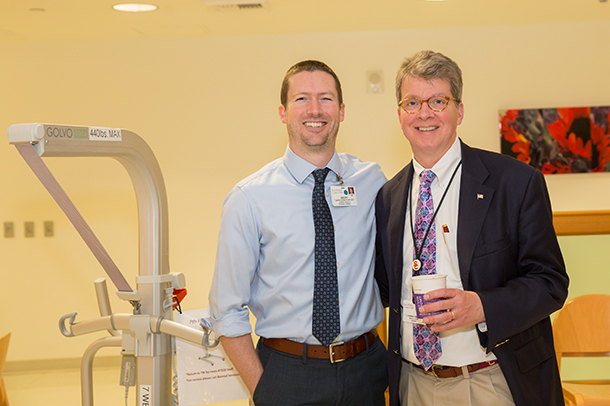On April 15, 2013, terrorists struck the Boston Marathon, killing three people and wounding more than 260. Clinical staff across Boston’s hospitals did heroic work, treating those who suffered burns, fractures and more severe injuries as a result of the homemade bombs. The emergency response planning also was effective: The wounded were distributed evenly among the area’s five trauma centers.
But the caregivers faced a huge problem: There was no standard way to ask another hospital how many critical care beds were available or if it had supplies to spare. In some cases, individual doctors and nurses ended up texting friends at other hospitals for this vital information.
J. Perren Cobb, MD, professor of clinical surgery at the Keck School of Medicine of USC and chair of the advisory board for the new Critical Care Institute, was director of the critical care center at Massachusetts General Hospital at the time. After the attack, he was struck by the need for better communication between hospitals.
Inspired by those events, Cobb has been instrumental in the launch of Discovery PREP, an emergency preparedness program designed to help hospitals be ready for both predictable and unpredictable disasters, and to foster rapid collaboration between medical centers, federal agencies and industry suppliers. Keck Medicine of USC is leading a network of 20 nationwide program trial sites, run by the research network of the Society of Critical Care Medicine.
Cobb explained: “A well-designed system will allow us to collect and analyze data, test hypotheses and quickly share results across the country and the world.”
Discovery PREP clinical trials are underway to develop standard approaches to real-time data collection, analysis and reporting. When a standardized system for data sharing is developed, hospitals will be able to rapidly share which treatments have worked best for them and help other hospitals deal with crises quickly and effectively, he said.
— Lex Davis


